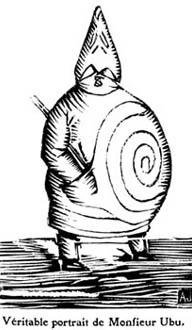'At exactly 9:09 you stare at your watch until 10:10 and then it is past' could be a review of myself in the act of reviewing (a piece I should be writing down)
The line comes from 'Mystery of the Hidden Face,' the first poem or section of Bethany Wright's 'Indeed, Insist (a mystery)' published by Ugly Duckling Presse.
The physically long book first presents itself to the reader as a theatre: a red curtain spread before a black background with four disembodied arms wielding murder implements from 'Clue' as though using them the way the game suggests.
The material used to construct the text comes largely from 'who killed Harlowe Thrombey' a choose your own adventure novel (if this classification is accurate) from 1981, interspersed with textual material from the Marquis de Sade, Harry S. Truman, Matt Marble, and the 'Peterson First Guide to Birds of North America.'
Given the primary source material it makes sense that, like the line above, much of the book is addressed to a blank 'you;' you are told what you know, what you think you might do next. The source material also gives the book its anxiety about encountering an ending, which floats around the 'you' and the narrator throughout. The 'you' often finds itself masturbating, presumably from all the anxiety about ending, and excitement about choosing one's own adventure.
The lines, like the length of the pages, are long, and the sections, like the height of the pages, are short. The entire page is used as a field with little regard for the left margin (though instances where the sequence of reading the page are rare), and the page is the only consistent measure. The lines shift in font sizes and types throughout the book, though almost the entire book falls into text, small text, and bold text. The way this last orthographic aspect of the text functions is very interesting. It functions in many different ways: substitution, subtext, censorship, coding and decoding exactly what is being said, shifting between fragments and sources, voiced and narrated text, but it always indicates a gap.
The poems fill themselves with the act of basic narration, an incredibly interesting act considering that the book has no narrative, or if it does, the only thing that can be said about it with any certainty is that it is being narrated. The slicing, substitution, coding and recoding, lack of chronology, etc have removed all characteristics from characters, leaving them proper nouns, words surrounded by words. Preserved in the text is the particular basic tone of children's fiction (not quite patronizing):
I think Angela and Robert are planning to marry.
(you would think they were planning to be arrested!)
elicits the requisite 'oh my' from inner ten year olds who've learned about being arrested through the literary lineage of Sherlock Holmes. It is interesting that Bethany Wright chose to preserve some discerning aspects of the plot, such as that there are multiple suspects in the case, that the method of murder was poison, the victim 'Harlowe Thrombey,' possibly a suicide, though it is never established that or when he passed, all crime happening 'offstage' or in 'your memory.' The section titles say exactly which part of the book you are reading:
Mystery of the Hidden Face
The Letter That Changed Everything
The Half Relations
The Inherited House
The Secret Closet
The Disappearing Desk
Trapped
No Door
Maladroit
The Distant Flicker
Invisible Hands
The Whispering warning
Suffering
The Flickering Flame
Suffering
The Missing Gravestone
-
Howling
Mystery of the Floating Faces
The Inherited Face
'Indeed, Insist' Indeed!
